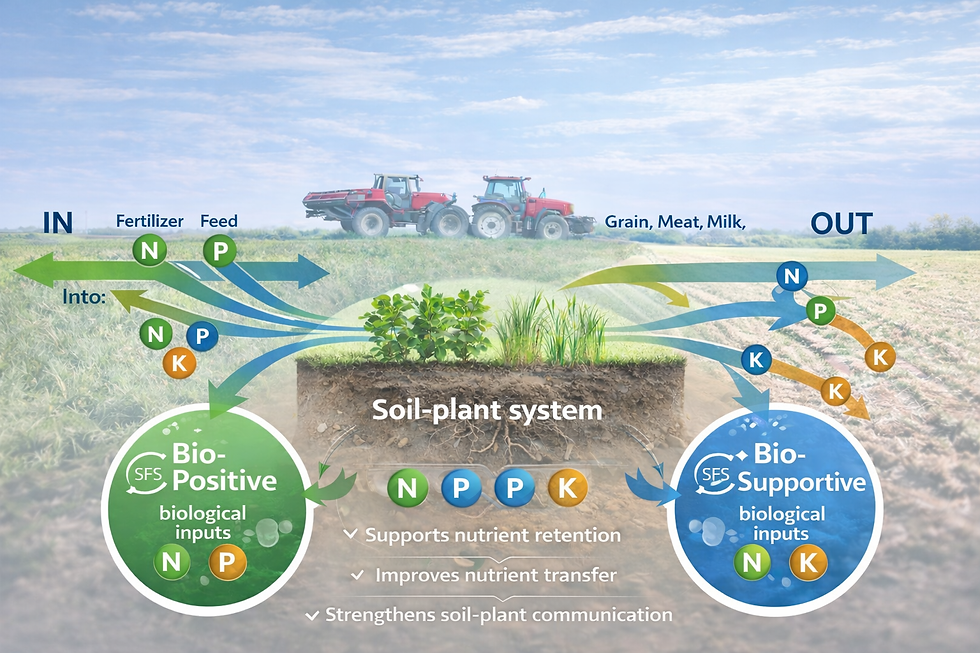The SFS Soil Audit: Unlocking the Full Picture of Soil Health
- Soil Fertility Services Ltd

- Sep 29, 2025
- 2 min read
Healthy soil is the foundation of productive, profitable, and sustainable farming. Yet too often, farmers are asked to make management decisions based on incomplete information. Standard soil tests provide only a limited snapshot, typically focusing on pH, phosphorus, potassium, magnesium, and occasionally organic matter. While useful, this narrow view overlooks many factors that drive crop performance, fertiliser efficiency, and long-term soil resilience.
At SFS, we believe farmers deserve better. That is why we developed the SFS Soil Audit, a comprehensive assessment that goes well beyond the standard. By analysing soil chemistry, biology, and structure together, the SFS Soil Audit reveals both the potential of a SOIL and the barriers that may be holding it back.
A basic run-of-the-mill soil test might tell you what nutrients are present. Still, it does not reveal how available those nutrients are to crops, how they interact with one another, or whether imbalances are undermining fertiliser efficiency. It rarely measures soil biology, even though microbes play a central role in nutrient cycling, and it overlooks the influence of soil structure and carbon status on long-term fertility. As a result, farmers then apply fertiliser without fully understanding whether the soil can use it efficiently, or whether deeper constraints are limiting performance.

The SFS Soil Audit is designed to address these gaps. It is built on the Albrecht-Kinsey
approach to mineral balance, combined with modern insights into soil biology and carbon dynamics. The audit measures not just what is in the soil, but how well the soil is functioning. It provides a comprehensive mineral balance analysis, examining not only P & K but also calcium, magnesium, sodium, and trace elements, and evaluating the ratios that influence nutrient uptake and soil structure.
It examines biological indicators such as organic matter quality and microbial activity, offering a measure of soil life and its ability to release nutrients naturally. It also includes soil health metrics such as cation exchange capacity and base saturation, giving an accurate picture of fertility potential and resilience. Most importantly, the audit translates this information into practical recommendations that help farmers build fertility strategically rather than relying on short-term fixes.
The benefits of this approach are tangible. Correcting nutrient imbalances improves the return on fertiliser, as applied nutrients are used more efficiently. Many farms find they can reduce fertiliser inputs once hidden reserves are unlocked and soil biology is functioning more effectively.
A balanced soil also supports better structure, stronger carbon storage, and greater resilience to drought, all of which underpin long-term productivity. Above all, the SFS Soil Audit provides farmers with the knowledge they need to make informed decisions that support both crop performance and environmental stewardship, aligning with policy frameworks such as the Sustainable Farming Incentive.
The future of farming depends on soils that can sustain high yields while meeting environmental targets. Standard soil tests can only take us so far. The SFS Soil Audit equips farmers with the deeper understanding needed to manage soils as living, dynamic systems, rather than simply a medium for fertiliser. Going beyond the basics gives farmers the confidence to reduce waste, enhance soil health, and unlock the full potential of their land.
Learn more about the SFS Soil Audit: soilfertilityservices.co.uk





Comments